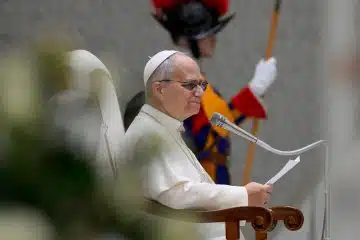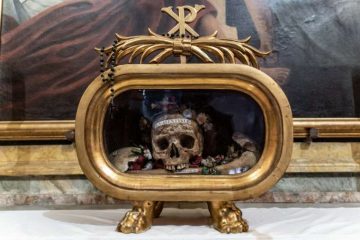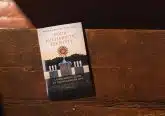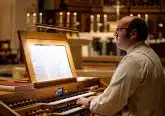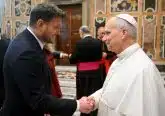Book Review: Walk the Line
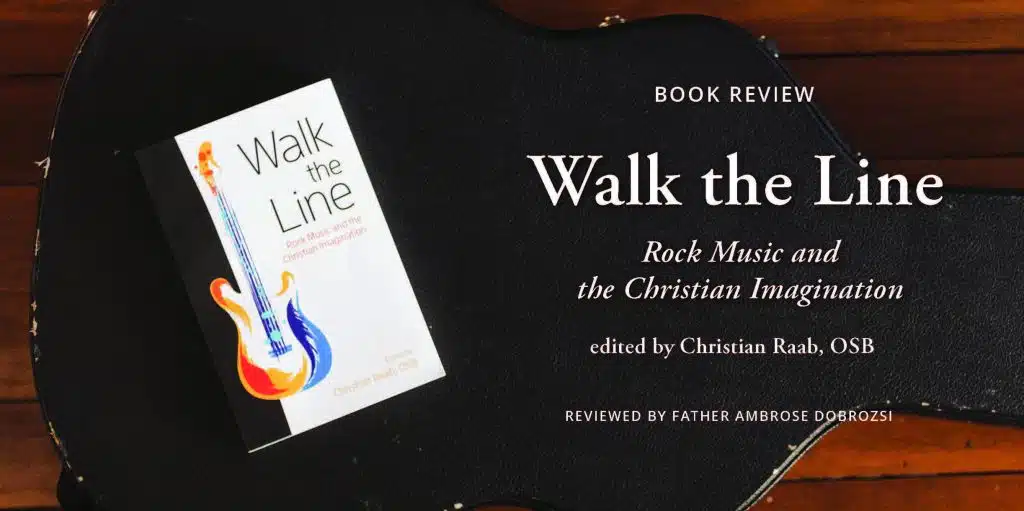
As a priest and punk rocker who, through loud, angry music, found meaning and hope in the midst of suffering, I was overjoyed to discover Walk the Line: Rock Music and the Christian Imagination. This collection’s essays delve into particular songs and various artists’ work to find expressions of the Christian imagination. The result is edifying, fun to read and provides a template for the reader to consider other music in the same, theologically-minded way. In the introduction, Editor Father Christian Raab, OSB, describes the book as using “theological reflection to help people listen to secular music in a new way,” a goal I believe is truly important in our current day and age.
Walk the Line’s authors engage a wide array of musicians and rock genres. All of rock music’s history is fair game, from its roots in soul and blues, through the Beatles and Bob Dylan, to younger lesser known artists. Each chapter dives into its subject matter with attention to detail and an openness to really hear what each musician has to say, creating an honest and deep conversation between Catholic doctrine and our modern day poets.
The exposition of Catholic tradition side-by-side with popular lyrics is especially gratifying. For example, St. Augustine’s words are frequently compared to the powerful desire expressed in rock’s love songs. Ancient heretics’ errors are examined next to competing ideas of truth in modern society and music. U2’s message is read next to Richard Rohr and ancient Gnostic doctrines. This practice of seeing music through Christian eyes, open to the world but formed by the lens of truth, is critical in the modern world.
My only criticism is that the essays in Walk the Line tend to engage with the lyrics but not the music. The musical decisions about what a song should sound like are essential to rock’s significance. For example, the chapter on Sara Barreilles’ “Brave” presents a dynamic inquiry into the concept of “truth” behind the song’s admonition to speak the truth to power, in the context of the “Me Too” movement. But “Brave” is a pop song, with the modern pop’s characteristic sound that is carefully curated to appeal to a mass market. At best, this is in tension with the song’s indictment of that very commercial culture. The decision to make the song sound like a pop anthem affects its meaning, but this dilemma is not noted in the book.
Some of the collection’s authors better engage the musical aspect of the songs and artists they discuss. Overall, though, I would also have enjoyed a deeper look into the music along with the excellent discussion of the lyrics.
I greatly enjoyed reading Walk the Line and recommend it. In our secular culture, identifying and benefiting from the theological ideas behind pop culture is an essential skill. This book is a delightful exercise in that skill.
Father Ambrose Dobrozsi is a priest of the Archdiocese of Cincinnati and the parochial vicar for the NE-3 Family of Parishes.
Christian Raab, OSB, editor; Walk the Line: Rock Music and the Christian Imagination; New City Press, 2023; 260 Pages; $24.95.
This article appeared in the March 2024 edition of The Catholic Telegraph Magazine. For your complimentary subscription, click here.




